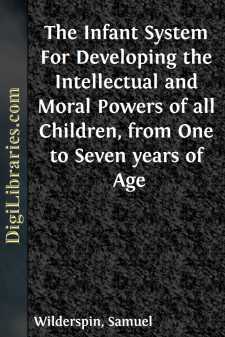Categories
- Antiques & Collectibles 13
- Architecture 36
- Art 48
- Bibles 22
- Biography & Autobiography 815
- Body, Mind & Spirit 144
- Business & Economics 28
- Children's Books 18
- Children's Fiction 14
- Computers 4
- Cooking 94
- Crafts & Hobbies 4
- Drama 346
- Education 58
- Family & Relationships 59
- Fiction 11835
- Games 19
- Gardening 17
- Health & Fitness 34
- History 1378
- House & Home 1
- Humor 147
- Juvenile Fiction 1873
- Juvenile Nonfiction 202
- Language Arts & Disciplines 89
- Law 16
- Literary Collections 686
- Literary Criticism 179
- Mathematics 13
- Medical 41
- Music 40
- Nature 180
- Non-Classifiable 1768
- Performing Arts 7
- Periodicals 1453
- Philosophy 65
- Photography 2
- Poetry 896
- Political Science 203
- Psychology 44
- Reference 154
- Religion 515
- Science 126
- Self-Help 85
- Social Science 83
- Sports & Recreation 34
- Study Aids 3
- Technology & Engineering 59
- Transportation 23
- Travel 463
- True Crime 29
Our website is made possible by displaying online advertisements to our visitors.
Please consider supporting us by disabling your ad blocker.
The Infant System For Developing the Intellectual and Moral Powers of all Children, from One to Seven years of Age
Description:
Excerpt
A FEW TESTIMONIALS TO THE INFANT SYSTEM.
It is said that we are aiming at carrying education too far; that we are drawing it out to an extravagant length, and that, not satisfied with dispensing education to children also have attained what in former times was thought a proper age, we are now anxious to educate mere infants, incapable of receiving benefit from such instruction. This objection may be answered in two ways. In the first place, it should be observed, that the objection comes from those very persons who object to education being given to children when they arrive at a more advanced period, on the ground that their parents then begin to find them useful in labour, and consequently cannot spare so much of their time as might be requisite: surely, that, the education of the children should commence at that time when their labour can be of value to their parents. But the other answer, in my opinion, is still more decisive: it is found even at the early age of seven or eight, that children are not void of those propensities, which are the forerunners of vice, and I can give no better illustration of this, than the fact of a child only eight years old, being convicted of a capital offence at our tribunals of justice; when, therefore, I find that at this early period of life, these habits of vice are formed, it seems to me that we ought to begin still earlier to store their minds with such tastes, and to instruct them in such a manner as to exclude the admission of those practises that lead to such early crime and depravity. A Noble friend has most justly stated, that it is not with the experiences of yesterday that we come armed to the contest: it is not a speculation that we are bringing forward to your notice, but an experiment.'—The Lord Chancellor.
"In leaving poor children to the care of their parents, neglect is the least that happens; it too frequently occurs that they are turned over to delegates, where they meet with the worst treatment; so that we do not in fact come so much into contact with the parents themselves as with those delegates, who are so utterly unfit for the office they undertake. Infant Schools, however, have completely succeeded, not only in the negative plan they had in view, of keeping the children out of vice and mischief, but even to the extent of engrafting in their minds at an early age those principles of virtue, which capacitated them for receiving a further stage of instruction at a more advanced school, and finally, as they approached manhood, to be ripened into the noblest sentiments of probity and integrity."—The Marquis of Lansdowne.
"I am a zealous friend, upon conviction, to Infant Schools for the children of the poor. No person who has not himself watched them, can form an adequate action of what these institutions, when judiciously conducted, may effect in forming the tempers and habits of young children; in giving them, not so much actual knowledge, as that which at their age is more important, the habit and faculty of acquiring it; and it correcting those moral defects which neglect or injudicious treatment would soon confirm and render incurable....












